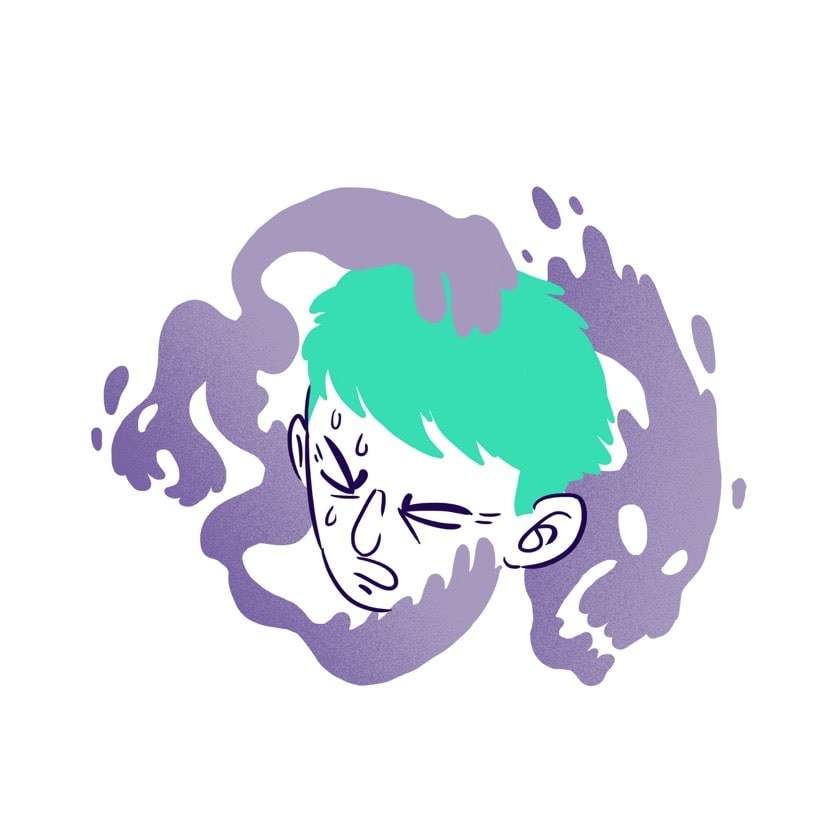The Hidden Meaning of Nightmares
The mere mention of its name is synonymous with anxiety, fear, a startle, and sometimes even terror. No, it is not the driving test. Nor is it the discovery of the baccalaureate results. A clue? It is possible to relive sometimes intense moments in our mind. You guessed it, it is the nightmare being referred to here. Or rather nightmares, as they are numerous and different from one person to another. In the family of dreams, they are not the most popular and even less the most pleasant companions of our nights. Yet they are unavoidable: we all have them, even if we do not always remember them! So we know what a nightmare looks like, but do we really know what it is? And why do we have nightmares? Could we actually be the unhappy hero of a film playing out without our knowledge, and most often at our expense? Close your eyes. Silence. Action…
Nightmares: the "making-of"
Everyone has nightmares, from our earliest age until the end of our lives. Just like "good" dreams, sometimes we remember our nightmares, other times not. But in fact, how is a nightmare defined? Is it a bad dream? Yes, a nightmare is actually a bad dream… from which we wake up! The nuance is here: a nightmare is an unfinished, incomplete bad dream, which often ends with a sudden awakening. And it is no coincidence that we have nightmares. This film, which often has a harrowing and thrilling plot for its hero (yes, you, the sleeper!), is actually prepared by our unconscious for a very specific purpose. It is no accident that we experience all these adventures in our nightmares!
Indeed, our brain works and rethinks real-life scenes during our bad dreams to prepare us to face difficult situations upon waking. Nightmares simulate threats so that we can better neutralize them. This is what Dr. Tore Nielsen demonstrated in a study conducted in 20081: "normal dreams serve a fear extinction function and nightmares reflect failures in emotion regulation." Nightmares are therefore useful! They are a clever mix of fears and reassuring elements concocted by an outstanding screenwriter: our brain. Just as another study revealed in Switzerland2, nightmares simply prepare us to face threats and adversity in real life, upon waking, this time with the courage and strength of a superhero!

While scientists are increasingly studying nightmares and their meanings, they still retain a great deal of mystery. That’s good, mystery is an essential ingredient for the success of a good script!
And the nominees for best screenplay are…
Besides its cathartic function, a nightmare can have several very different causes such as recent anxiety, an old memory, post-traumatic shock, and even certain physiological problems (chronic pain, illnesses…). Moreover, a study file from 19993 highlights that the use of certain medications, such as antidepressants or sedatives, can also cause bad dreams or nightmares. Various causes, therefore, just like the resulting scenarios!
Our brain does not lack imagination to make us experience strong emotions (sometimes too strong!) during our sleep. In the hit parade of recurring nightmares, we can mention falling freely (work overload?), being lost or trapped (difficult choices to make?), finding oneself naked in public (a classic of the genre!), or failing an exam like the baccalaureate or the driving test (there they are again after all!). The scenarios are multiple and can reveal different anxieties or fears, as we mentioned earlier. However, a 2014 study4 published online on the very serious site Sleep reveals that "Physical aggression was the most frequently reported theme in nightmares, while interpersonal conflicts predominated in bad dreams." Not sure this scenario deserves an Oscar nomination though…

Studies on the causes of nightmares as well as their meanings are quite numerous and sometimes contradictory. Nevertheless, they all agree on identifying a link between our real life and our nightmares. We are only actors in a sometimes ruthless or fantastic script and, even if they sometimes wake us up abruptly, we cannot deny their usefulness in helping us overcome some of our limits or fears when the time to wake up has come. We also sometimes win the Oscar for the most incredible story to tell our loved ones the next day!
Sources :
[1] Nightmares, Bad Dreams, and Emotion DysregulationA Review and New Neurocognitive Model of Dreaming, Tore A Nielsen, Ross Levin, ”Current Directions in Psychological Science”, April 2009 [2] Fear in dreams and in wakefulness: Evidence for day/night affective homeostasis, Virginie Sterpenich, Lampros Perogamvros et al, “Human Brain Mapping vol 41, February 2020 [3] Drug-induced nightmares, D F Thompson, D R Pierce, “The Annals of pharmacotherapy”, January 1999 [4] Thematic and Content Analysis of Idiopathic Nightmares and Bad Dream, Geneviève Robert, Antonio Zadra, “Sleep”, February 2014
